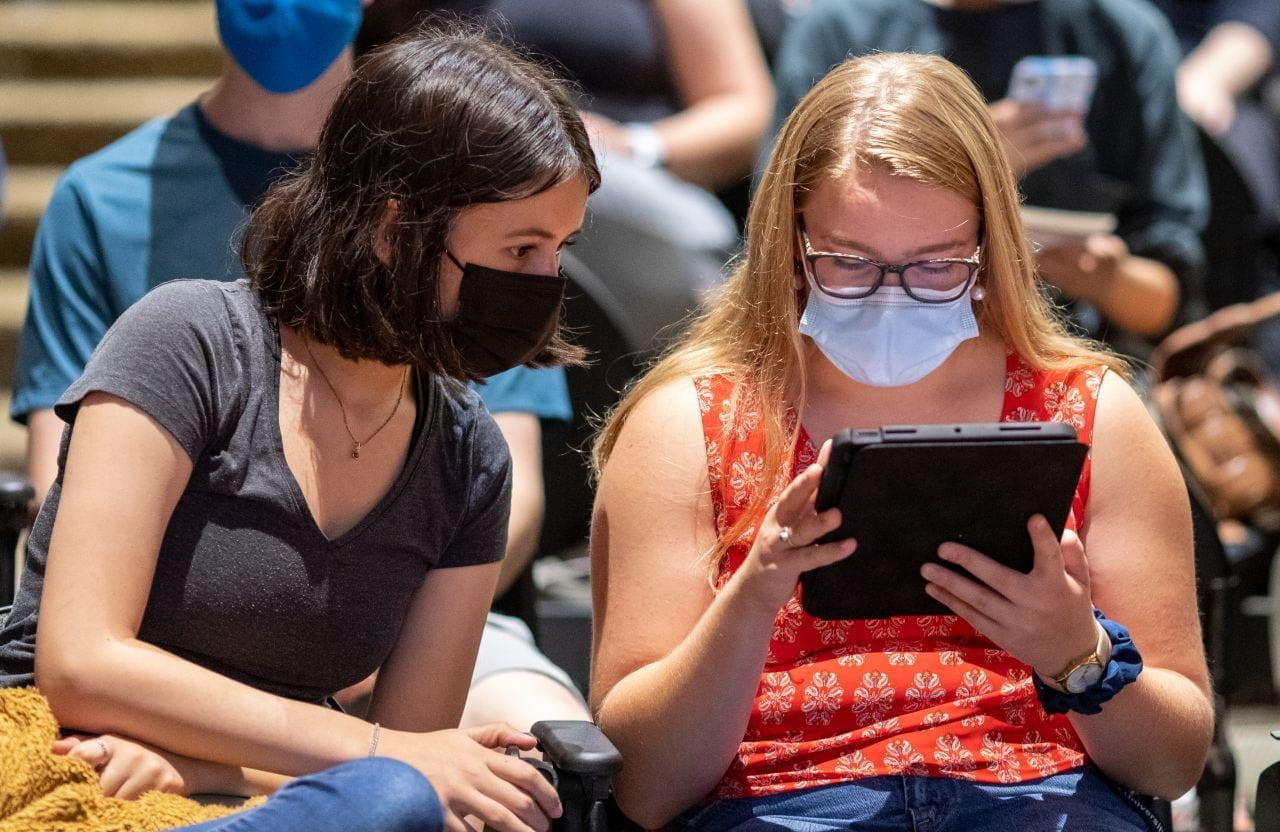Infectious Disease Epidemiology
What Is Infectious Disease Epidemiology?

Infectious disease epidemiology is the study of how and why infectious diseases emerge and spread among different populations, and what strategies can prevent or contain the spread of disease at the population level. Students in our Infectious Disease Epidemiology concentration study the biology of viral, bacterial, and parasitic agents, as well as the arthropod vectors that can carry and transmit diseases, such as ticks and mosquitoes. Our students also learn statistical methods to analyze data and explore disease transmission systems, and evidence-based approaches to preventing or containing disease transmission.
Our students recognize that humans, plants, animals, and non-living parts of the environment such as climate and water, are inseparable when exploring infectious disease epidemiology. This One Health approach prepares our graduates to address challenges from an ecological perspective, understanding that preventing the spread of disease from animals to human populations requires preserving natural resources and investing in the health of ecosystems.
What We Offer
Our MPH Program prepares students in the Infectious Disease Epidemiology concentration to address both established and emerging infectious diseases that have local, national, and global impact on public health. Through coursework and engaged projects our students learn to:

- Integrate the general principles of infectious disease epidemiology and biology to explain infectious disease events and programs
- Critically assess different epidemiological and statistical methodologies and assessment techniques used in infectious disease events, research, and programs
- Interpret how different environmental and socioeconomic systems impact infectious disease epidemiology
- Critique methods of infectious disease prevention, detection, and control
- Demonstrate the emergent leadership skills of a public health epidemiologist
Infectious Disease Epidemiology Curriculum
In addition to the MPH core curriculum, Infectious Disease Epidemiology students will take the following concentration-specific courses:
Principles of Infectious Disease for Public Health
This lecture-based course will cover the infectious agents important for public health, including the major viral, bacterial and parasitic agents in health and disease for humans. With over 2/3 of all emerging infectious diseases coming into people from animals (such as COVID-19), we’ll cover zoonoses in detail. The course will focus on the biology of the agents and vectors in the context of its transmission and possible countermeasures. One day per week will include a case-based section with a focus on small group and applied learning.
Advanced Epidemiologic Methods
This course will introduce and illustrate advanced epidemiologic concepts, study designs, and statistical methods commonly used in the analysis of epidemiologic data.
By the end of the course, students will be able to properly apply and interpret linear regression, logistic regression, Poisson regression, survival analysis, cluster analysis, and infectious disease modeling for a variety epidemiologic data and associated assessments.
Applied Epidemiology: Disease Surveillance & Outbreak Response
Global development is driving disease outbreaks; communicable disease prevention and control is a foundational element of public health, reducing death and disability. Core to this practice is the ability to assess and monitor population health; investigate, diagnose, and address health hazards and root causes; communicate effectively to inform and educate; and enable equitable access to prevention and care services. In short, you will be a public health asset if you can engage in applied epidemiology to prevent, detect, mitigate, and respond to communicable disease outbreaks.
In this course, you will build and hone your skills as a field epidemiologist. To do so, you will reinforce your understanding of bacterial, viral, and parasitic diseases of concern, and then practice methods to detect outbreaks, to investigate causes, and to support public health prevention through risk mitigation, communication, and policy change.

Diverse Career Pathways

Graduates of the Infectious Disease Epidemiology concentration build careers as epidemiologists, biostatisticians, consultants, analysts, project managers, and more. Some of our graduates help to tackle infectious diseases such as COVID-19 and tuberculosis, while some use their skills to address other complex public health, clinical, and healthcare problems.
In the US, our alumni take on roles with government agencies and research centers at local, state, and federal levels, including the Maine Center for Disease Control and Prevention, NASA’s Lifetime Surveillance of Astronaut Health Program, the Texas Department of State Health Services, and Weill Cornell Medicine Center for Global Health. Others work in healthcare consulting with companies such as Deloitte and Boston Healthcare Associates.
Infectious Disease Epidemiology graduates also work for corporations and NGOs around the world, applying a range of public health skills from systems thinking to cultural competence in roles such as Health Equity Analyst for an international stock brokerage firm, Project Manager for an African start-up company focused on food security, and Health Officer for the International Federation of Red Cross in East Asia.
While most of our graduates immediately enter the workforce, approximately 25% go on to pursue additional degrees, such as an MD or PhD in Epidemiology.
Research and Engaged Learning
Want to learn more about what our Infectious Disease Epidemiology students and faculty are working on? Check out the stories below!
Rapid Response Fund takes aim at emergent threats to feline health
Laura Goodman, Assistant Professor; Gary Whittaker, James Law Professor of Virology
‘Teenage’ bats most likely to spread coronaviruses
Deer spread parasites that harm Adirondack moose
Krysten Schuler, Associate Research Professor



